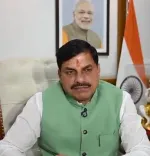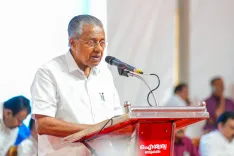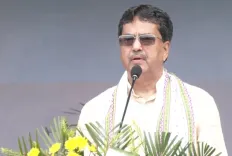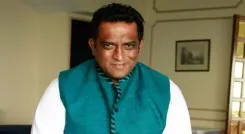How Did the Emergency Highlight the Importance of Legislature, Executive, and Judiciary?
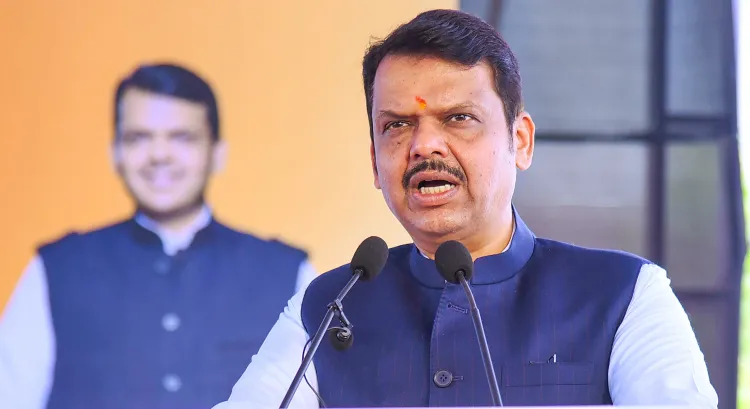
Synopsis
Key Takeaways
- The Emergency reinforced the importance of democratic institutions.
- It led to a deeper understanding of constitutional rights among citizens.
- Personal stories from the period highlight the human cost of authoritarianism.
- The need for historical awareness to protect democracy is vital.
- Constitution Assassination Day symbolizes commitment to safeguarding democratic values.
Mumbai, June 25 (NationPress) Chief Minister Devendra Fadnavis remarked on Wednesday that the aftermath of the Emergency further highlighted the importance of the legislature, executive, and judiciary. He noted that citizens gained a deeper understanding of democracy's significance, leading to a strengthened faith in the Constitution.
In his reflections on the 50th anniversary of the Emergency, CM Fadnavis emphasized that belief in the Constitution has solidified over the years.
“Had those leaders not resisted, our nation might have succumbed to dictatorship as seen in Pakistan today. The democracy we enjoy is a result of the sacrifices made by those leaders 50 years ago. Their legacy is more crucial now than the memories of the Emergency itself. As stories of the Gandhi family and the Congress emerge, they will only fortify our democracy. We are showcasing these poignant narratives of the Emergency through exhibitions in every district of the state. I urge everyone to visit,” he stated.
He continued, “We will honor the families who bravely stood against the Emergency and fought for the restoration of democracy by presenting them with certificates of recognition. The state government will also provide an honorarium to these families. This is a sacred offering in the temple of democracy. Future generations must grasp this history.”
CM Fadnavis remarked that today signifies 50 years since a dark period in our nation’s past. “How can we call it a golden jubilee? A jubilee is meant to celebrate good times. It is vital to acknowledge that we are commemorating the conclusion of a chapter written by the Congress party, which disregarded the Constitution and democracy. We must remember the past, as it fuels our strength to resist,” he stated.
According to the chief minister, the Emergency disrupted countless families. Many lost loved ones, and many faced financial ruin while their primary earners were incarcerated. Properties were seized, industries collapsed, and jobs were lost, resulting in significant mental and financial distress. “Personally, I was only five years old at the time. My father, Gangadharrao Fadnavis, was arrested, and I could only see him when he was taken for medical check-ups or when I brought him supplies to jail. I endured long periods away from him, which filled me with anger,” he recounted.
“Under the MISA Act, individuals could be imprisoned without a trial. Laws were enacted that protected police officers from prosecution even in cases of personal vendetta. One Supreme Court Justice opposed this, but the other four judges remained silent. The lone dissenter, who upheld the fundamental rights established by Dr. Babasaheb Ambedkar, was forced to resign. The Constitution was being dismantled to appease a single family's ego,” CM Fadnavis lamented.
He added that during Dr. Babasaheb Ambedkar's lifetime, the Congress party never embraced his ideals and, during the Emergency, sought revenge against the sacred Constitution he had gifted. Over 300,000 individuals were imprisoned, including leaders from the Socialist, Rashtriya Swayamsevak Sangh, and Jan Sangh. Only two parties supported the Emergency: the CPI and the Shiv Sena. The CPI(M) also took an opposing stance, he noted.
“Today, following Operation Sindoor, the Congress should feel ashamed of its stance. Not long before the Emergency, there was a conflict with Pakistan. Atal Bihari Vajpayee expressed his support for Indira Gandhi as the Jana Sangh leader then. After the Emergency was lifted, a rally at Ramlila Maidan resounded with slogans like 'Indira Gandhi Murdabad' and 'Atal Bihari Vajpayee Zindabad.' Atalji calmed the crowd,” he recalled.
“People gained a clearer understanding of the profound significance of democracy, and their faith in the Constitution has deepened,” the CM concluded.
In the meantime, the BJP-led Mahayuti government will commemorate Constitution Assassination Day throughout the state, reaffirming their commitment to safeguarding democracy.


